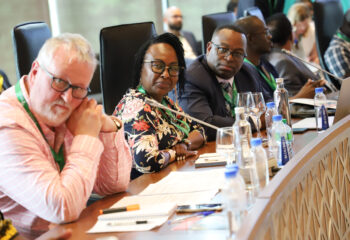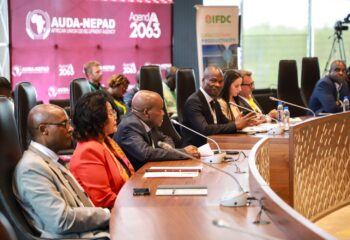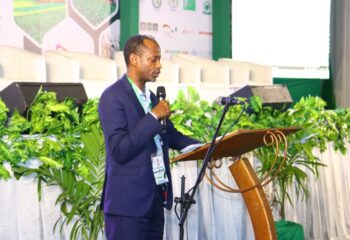IFDC Press Release
Tuesday, September 23, 2014 (12:00 noon)
IFDC Announces Climate-Smart Initiative at UN Climate Summit
Contact: Courtney Greene (256-381-6600, cgreene@ifdc.org, @IFDCNews)
Sept. 23, 2014 – Muscle Shoals, Ala., United States – The International Fertilizer Development Center (IFDC) joined organizations and governments today at the United Nations Climate Summit to announce initiatives to improve food security while mitigating climate change. The Center pledged its commitment to join the Global Alliance for Climate-Smart Agriculture and expand urea deep placement (UDP), a climate-smart technology, to farmers in Bangladesh and other areas of the world.
“Uncertain climate means uncertain harvests for the world’s 500 million small farms – and consequently an unstable global food supply,” says Dr. Amit Roy, IFDC president and CEO. “With governments, organizations and private entities working together, we can significantly reduce the impact of climate change, while building a resilient food system.”
Sustainable rice fertilization practices such as UDP can both increase food production and benefit the environment. “The 2 million Bangladeshi farmers using the technology are increasing their yields by about 18 percent,” says Ishrat Jahan, IFDC resident representative in Bangladesh. Jahan attended the UN Climate Summit on behalf of IFDC.
Rice farming is one of the world’s major sources of greenhouse gas emissions. IFDC is researching how UDP can reduce those emissions, particularly nitrous oxide, which is the dominant greenhouse gas responsible for ozone destruction. Deep point placement delivers more nutrients to the plant, reducing urea use, emissions and runoff.
The Virtual Fertilizer Research Center (VFRC), an IFDC research initiative, is focusing on fertilizer technology solutions for the future, harnessing the knowledge of forward-thinking scientists, nutritionists and other partners around the world.
“By 2050, farmers must be able to provide enough food for 9.6 billion people while simultaneously reducing agriculture’s contribution to climate change,” Roy says. “Achieving sustainable food security requires global, collaborative action to get smallholder farmers the products and training they need to build resilience to climate change.”
###
IFDC is a public international organization addressing critical issues such as international food security, the alleviation of global hunger and poverty, environmental protection and the promotion of economic development and self-sufficiency through the use of agricultural technologies including fertilizers and other inputs.




